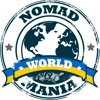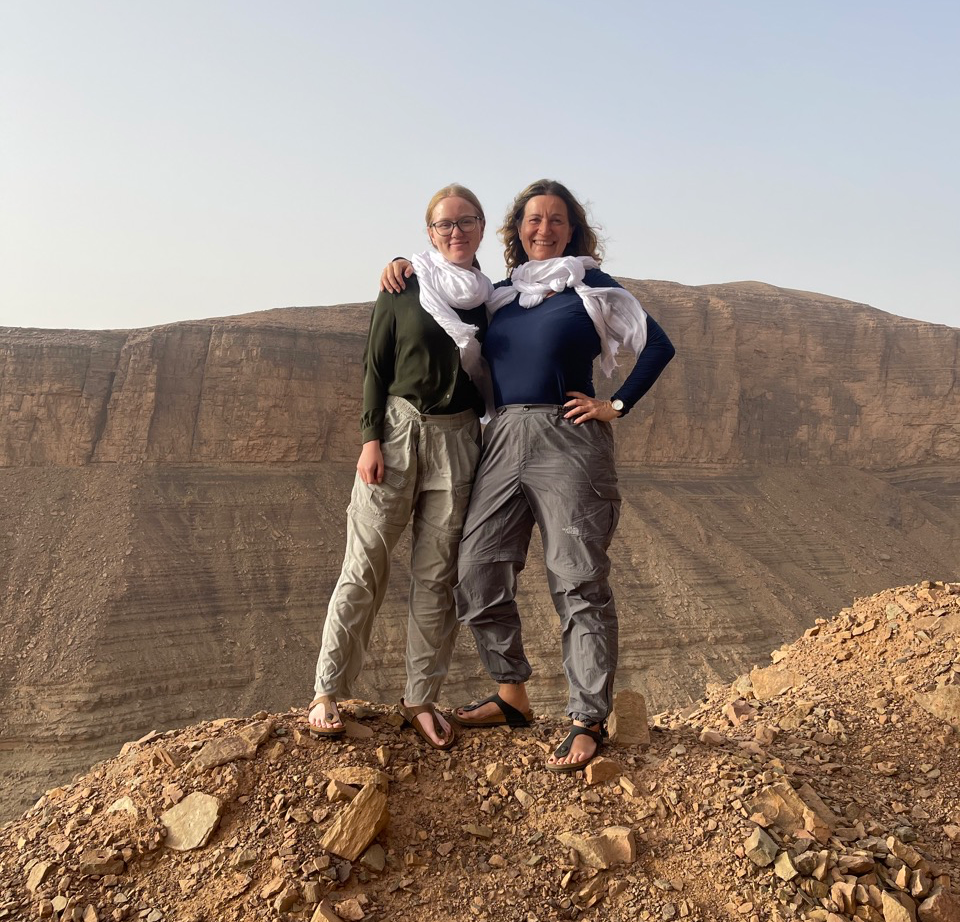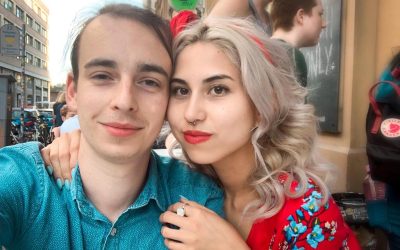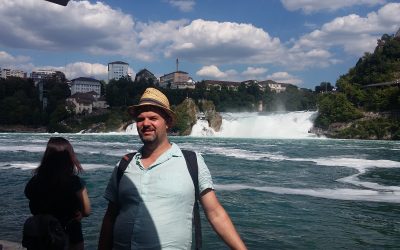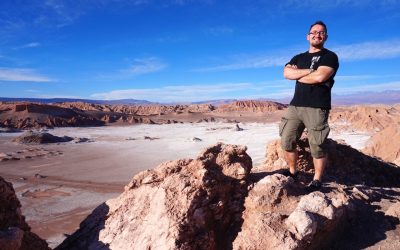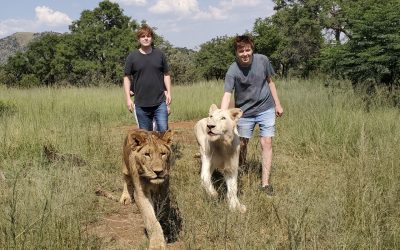Mette and Laerke Ehlers Mikkelsen is a great Danish traveller who travelled the World (only 4 countries left to finish UN 193), built a remarkable career AND raised three children along with that. Her middle daughter Laerke says that she caught the travel bug from her mother and at 19 had visited 110 countries and speaks Mandarin among some other languages. They are true proof that you can have it all and that travel can enrich your life without being the only focus of it.
Mette and Laerke Helene Ehlers Mikkelsen in Mauritania, July 2021. The trip was Laerke’s graduation present when finishing high school but had to be postponed two weeks as Mette first got Covid in Brazzaville and then flew to Kabul to get there before the Taliban took over.
Mette, we can consider you “responsible” for the travel couple here, so let us start with you. Tell us something about yourself please – where do you come from and what do you do when you don’t travel?
My professional focus is internationalisation, leadership and digitalization. This ties in well with travelling.
I help small enterprises grow. I work as a board member and I am proud and humble when entrepreneurs trust me with the work of their lives and we help them be the best they and their company can be. This I would like to do even more.
I am also a full-time project manager digitalizing Danish customs as part of an EU project. I am a censor at the university on leadership and international political economy. Out of passion, I am a board member of the Travelers café in Copenhagen.
Before I used to be a Danish diplomat & CEO of business and tourism promotion.
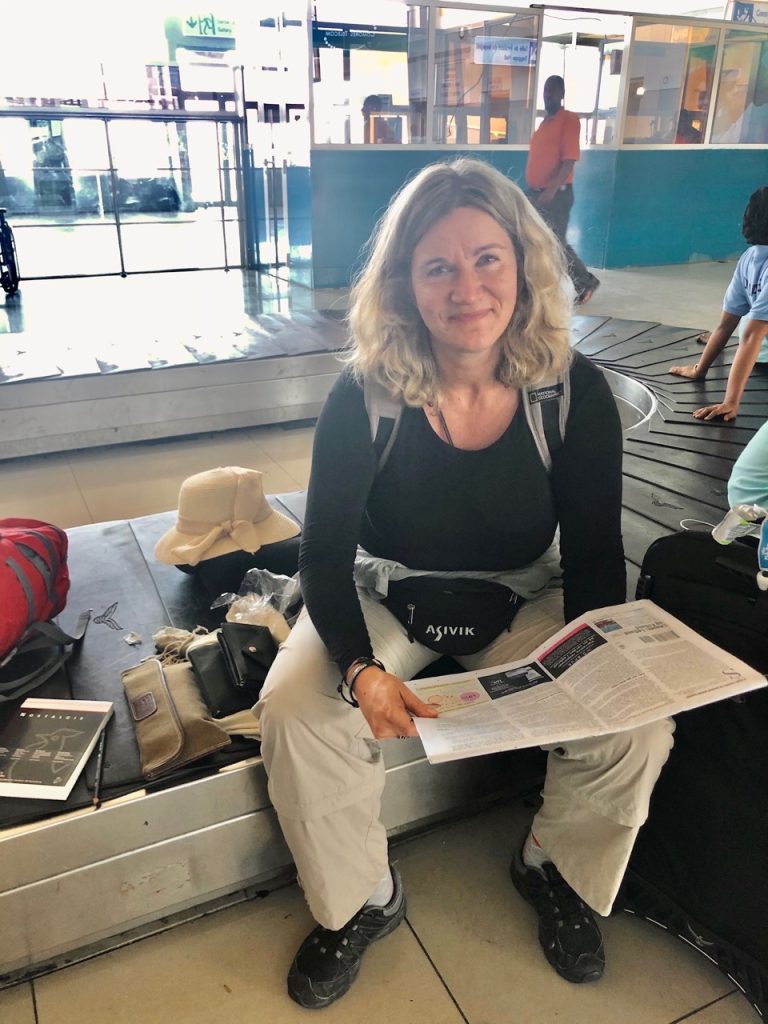
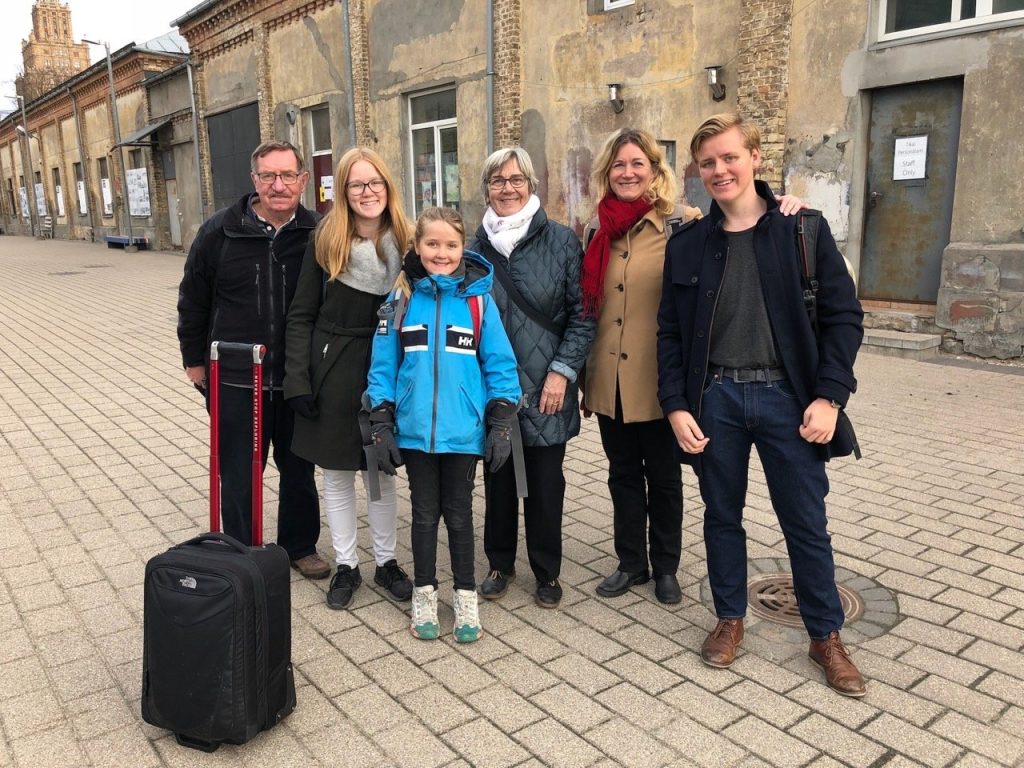
How and when did you start travelling? How did you discover that this was your passion?
My childhood was blessed with loving parents who took me travelling several times a year around Europe.
We are 4 generations of female travellers.
My mother’s mother was born in 1903 and when she became a widow, she sold the house and started travelling. We celebrated her 80 years birthday by travelling to Austria.
My mother was born in 1942 and travelled solo from age 20-26 to the former Yugoslavia, Spain etc. My dad had been a UN soldier in Gaza in 1966 just before the 6-day war. When they met, they continued travelling together.
That way I have traveled all my life and never wish to stop. At university I chose to study international relations from 1991-96 and brought my scholarship to the Ural Mountains, NATO, Washington DC and London – luckily my professor admired my ‘academic tourism’. Becoming a diplomat in 1996 let me use my passion and education to make a positive difference.
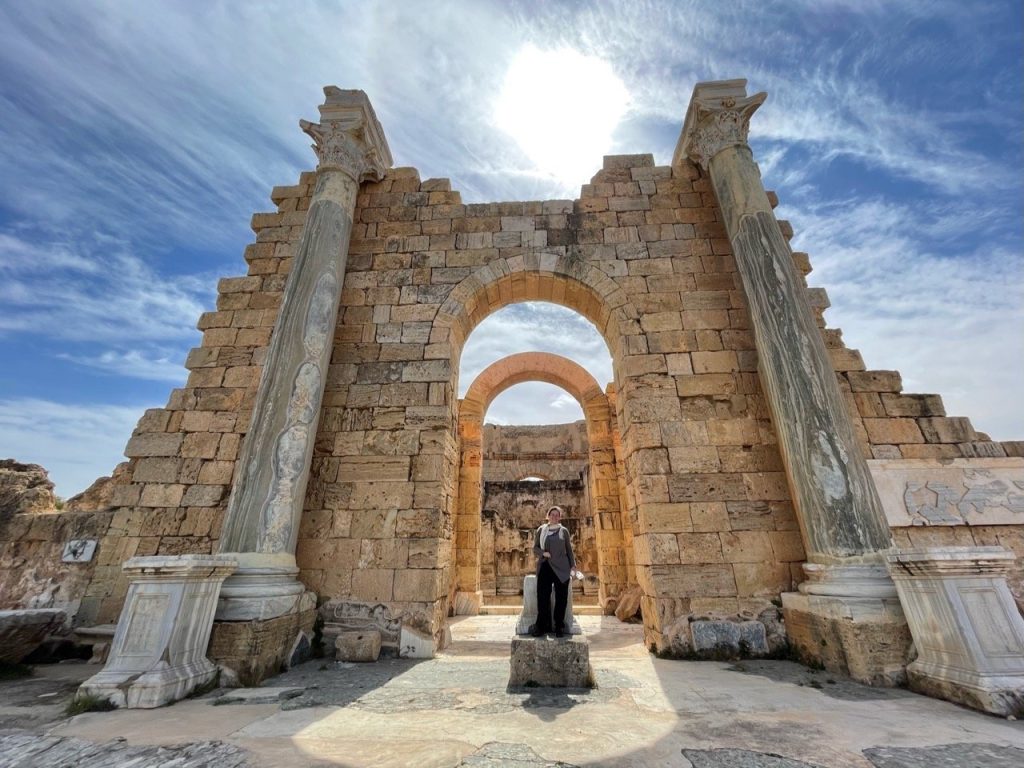
You are a mother of three children and you have travelled with all of them extensively. For most of the people having children is a breaking point when they either stop travelling or slow down significantly. What made you keep on going and how did you manage to pour your love for travel into them?
I love being a mother. Just as I love both travelling the world and my career. And I ambitiously set out to do it all – family, career and travel.
I got pregnant with Nicolai when I was posted in Estonia in 2001. When I was pregnant with Laerke, I asked the doctor to start the birth as it was late and I had a trip planned. We travelled 10 days after she was born.
The first 8-month trip around the world was with Laerke and Nicolai at ages 3 and 5 in 2006-7. Laerke turned 4 in Fiji with parrots greeting her saying ‘BULA’ (hello). For the kids, this was 8 months of being with their parents and enjoying new experiences together.
People respond so well to kids and families, so both Laerke and Nicolai could not help loving this.
I was always honest that I travelled for my own passion and brought the kids along. That way the whole trip did not have to evolve around them either.
In 2008 when Ella was born we brought her along everywhere, and when she was 2 years old I got posted again. This time to Stockholm 2010-14.
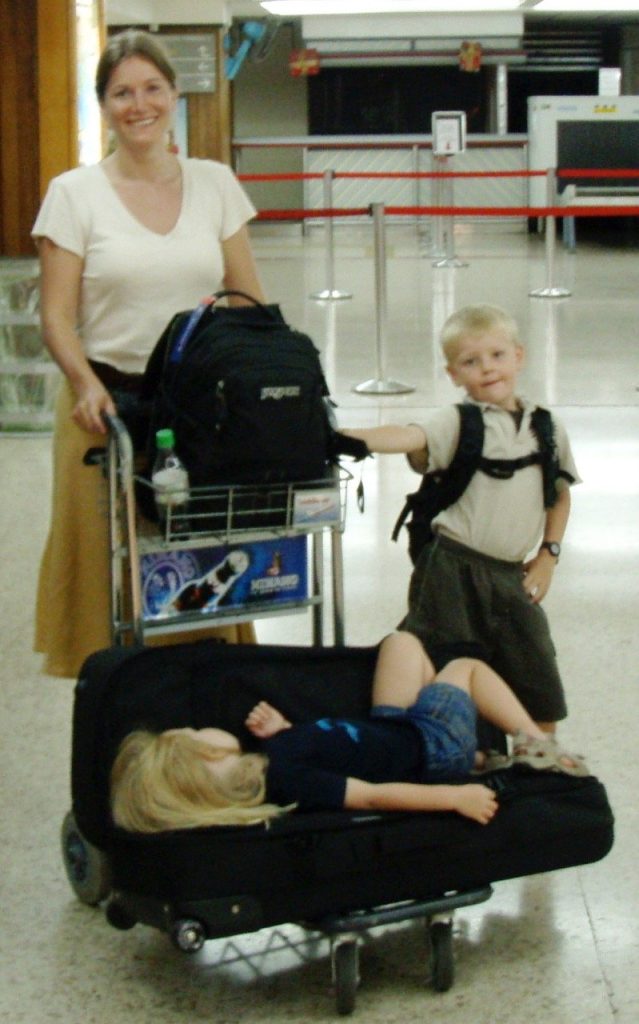
Do you see yourself as a positive example for other parents because of travelling so much with children? How do you think you can influence other people to gain more courage to do the same thing?
I hope I am. I wish to be.
Also as I divorced the father of my kids 6 years ago after 26 years together. Much to be able to follow the dream and the freedom of travelling. I proved to myself that even with only one income I could travel more than before. Even to every country in the world AND sharing these adventures with my kids.
As I write this I have visited 190/195; while Laerke at 19 has visited 110, Ella at 14 85 and Nicolai at 20 81 countries. Almost all with me.
I also would love to show that life can have different phases. My travel life has developed from travelling with my parents to studies, backpacking, family with little kids and now to solo travels, travelling with young adults, and travelling with my partner and friends from this international travel community.
I write articles for magazines and books, blog and give interviews and lectures. Often in The Travelers Café in Copenhagen. My wish is to write books on the adventure as such; on how to travel with kids from babies to young adults; and of the meeting with women around the world as I always shared a bond with them. We are also extremely few women and mothers close to 193.
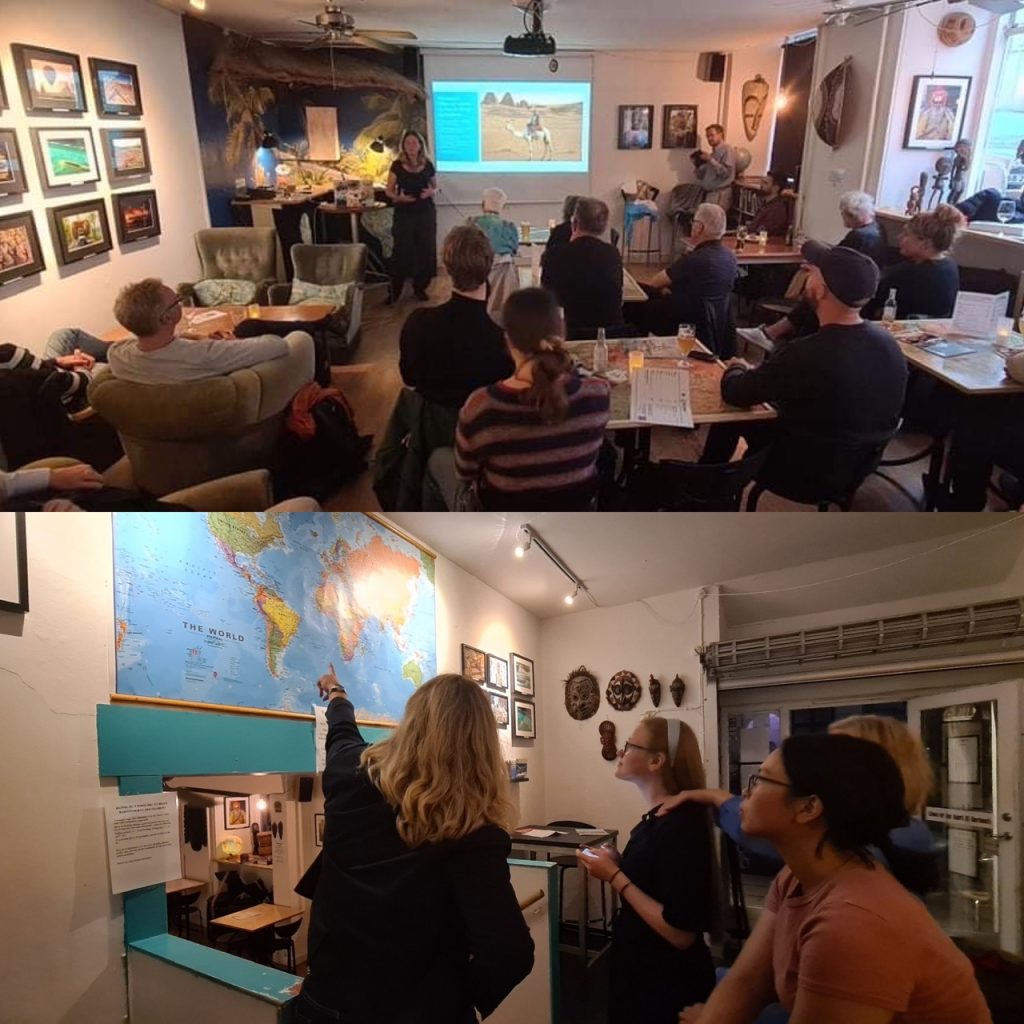
You are only 5 countries away from your goal of reaching all 193 countries. Which ones are you missing now and what is the plan for finishing?
Writing this I am in Iran with my daughters. This July I also plan to travel to Sierra Leone with my son. I am proud and happy he will celebrate his 21st birthday travelling with me.
Of the last four, only Somalia is open. Eritrea, Turkmenistan and North Korea are still closed. I thought about North Korea for the international women’s Day on 8/3/23 as a finish with style, but as I don’t know when they open, I now join a NomadMania conference instead at that time.
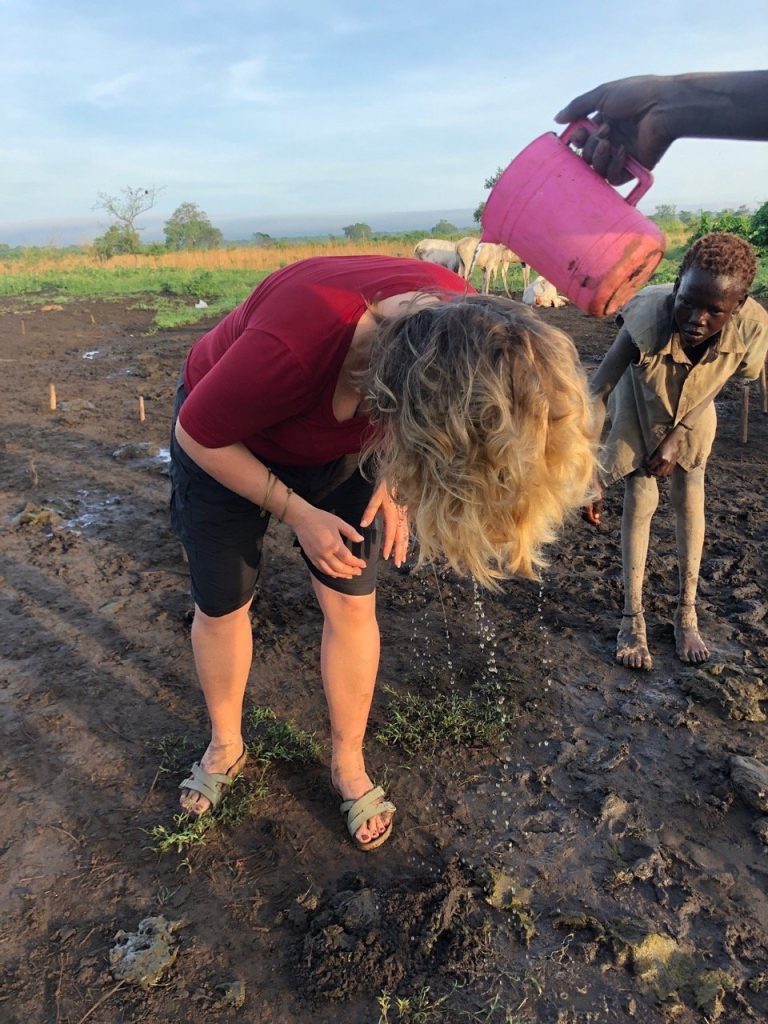
Can you share some interesting travel stories with us?
I have enjoyed travelling with people from NomadMania & EPS through Africa during Covid. Eg. Lucy, AJ and David in Libya and Lucy, AJ, Romaine and Keith in Sudan, South Sudan and Central African Republic. In South Sudan, they challenged me to wash my hair in the urine of the Mundari Cattle. So I did. They came with warm urine and poured it. I think I managed to toss my hair back to avoid getting it (too much) in the eyes and getting the others wet too. The Mundari told us I was the first visitor to do this. Now I get to dare other Nomads to do so.
Today I live together with Jakob whom I met in the Danish Travelers Club. 2019-20 we travelled around the world for 3.5 months. I loved Papua New Guinea for its strong women. One of them was Mary-Ann. She told me that her mother was a good gardener. I got a little lost telling my father also came from a farm. I just realized I was in a matriarchal society, so she was telling me that she had inherited fertile land and had respect and high social status. She also had enough wealth to provide for all her children and grandchildren. We had one of those respectful talks on being the head of a family, leadership, society and responsibilities.
Okawanga desert is one of the most amazing natural wonders. We had to experience sailing in canoes between hippos and hiking between elephants, giraffes, zebras and antelopes. At dinner, small scorpions fell from the tree above us into Ella’s lap. The next morning I woke early by noise next to the tent. As I got out it turned out to be a young male elephant standing next to me blocking my way to the tent with a bush toilet.
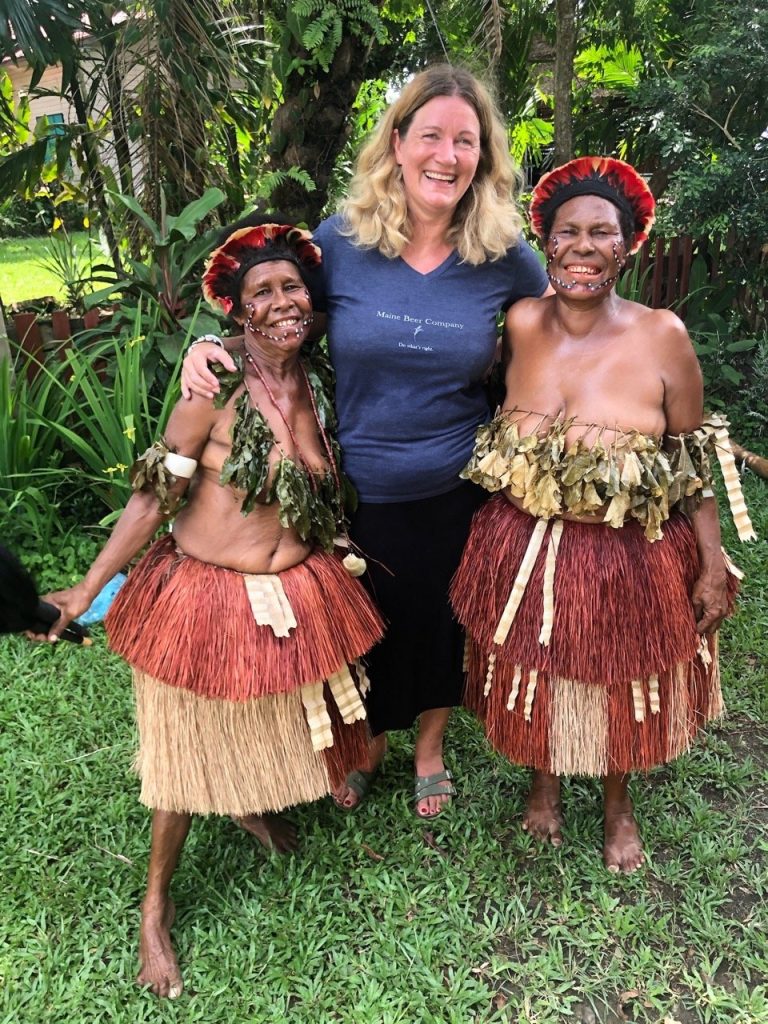
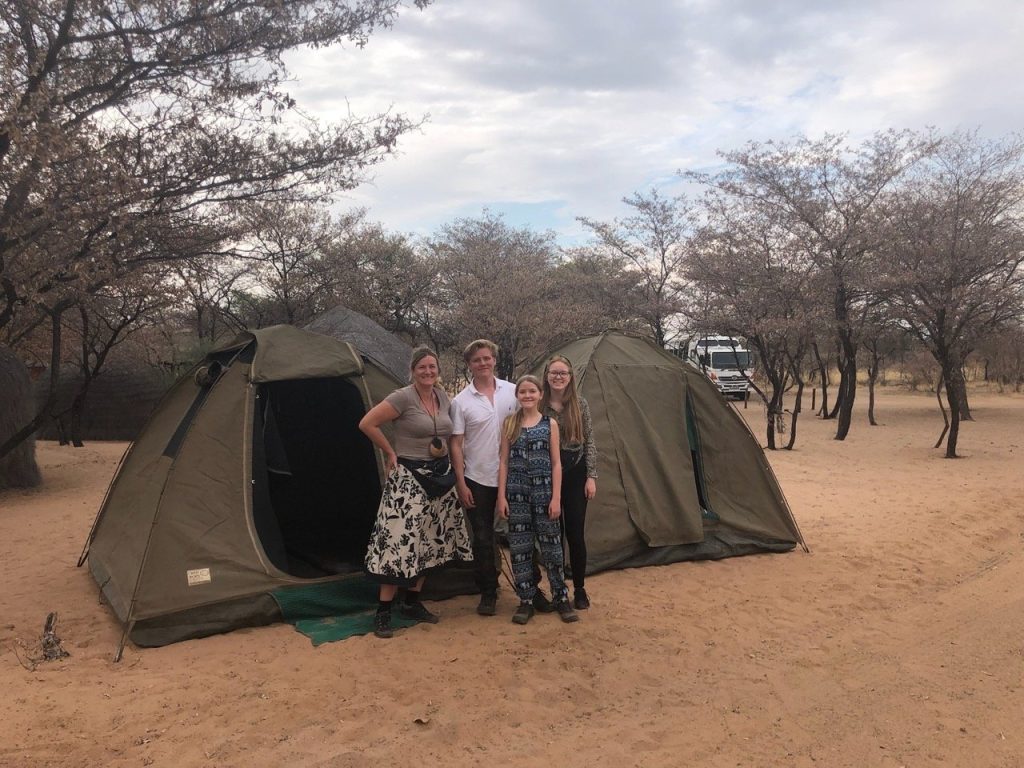
Now Laerke. Please tell us something about yourself and how did you get hooked on travelling so much? Was it your mom’s “blame” or something else, in your opinion?
I am 19 years old and now finishing a gap year between high school and university that I have dedicated to travelling
Of course, I would love to convince myself that I have myself to thank, but the travel gene runs in the family, and I have definitely been inspired by my mother.
A big part of my fascination with seeing the world has come from growing up in an international environment, both through our travels and my studies at Stockholm International School, where I got to meet people from vastly different cultures.
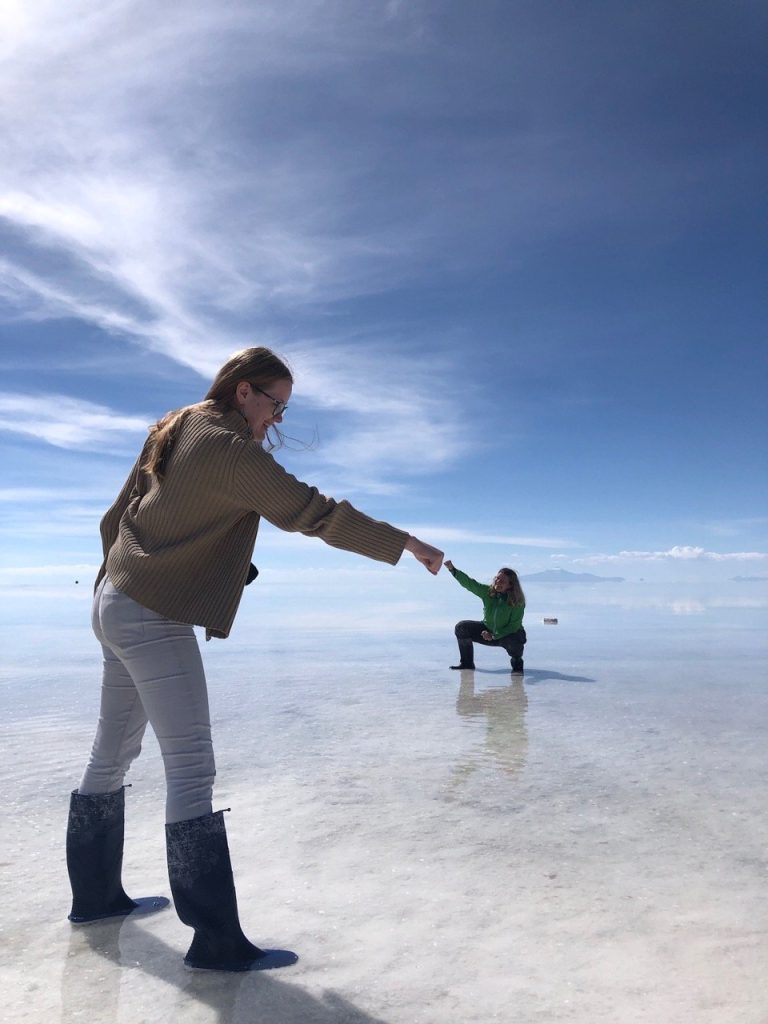
You speak Mandarin, among other languages. How come? What are all other languages that you speak or would love to learn in the future?
Growing up, I was (and still am) especially interested in the East Asian languages of Japan, South Korea and China. From my view, Japanese best suited my voice, Korean seemed the most straightforward, and Mandarin made the most sense in terms of business prospects. Making that calculation, I decided on Mandarin!
Aside from Mandarin, I speak Danish and English fluently, am proficient in Swedish and Norwegian, and understand a lot of French and Korean. In the future, I would like to further improve my Mandarin, French and Korean, while the next challenge would be Arabic.
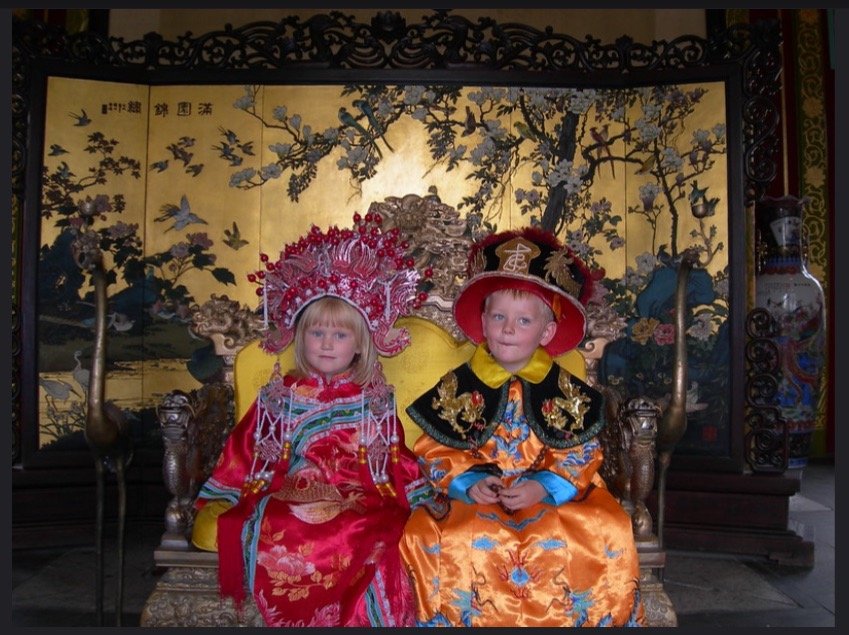
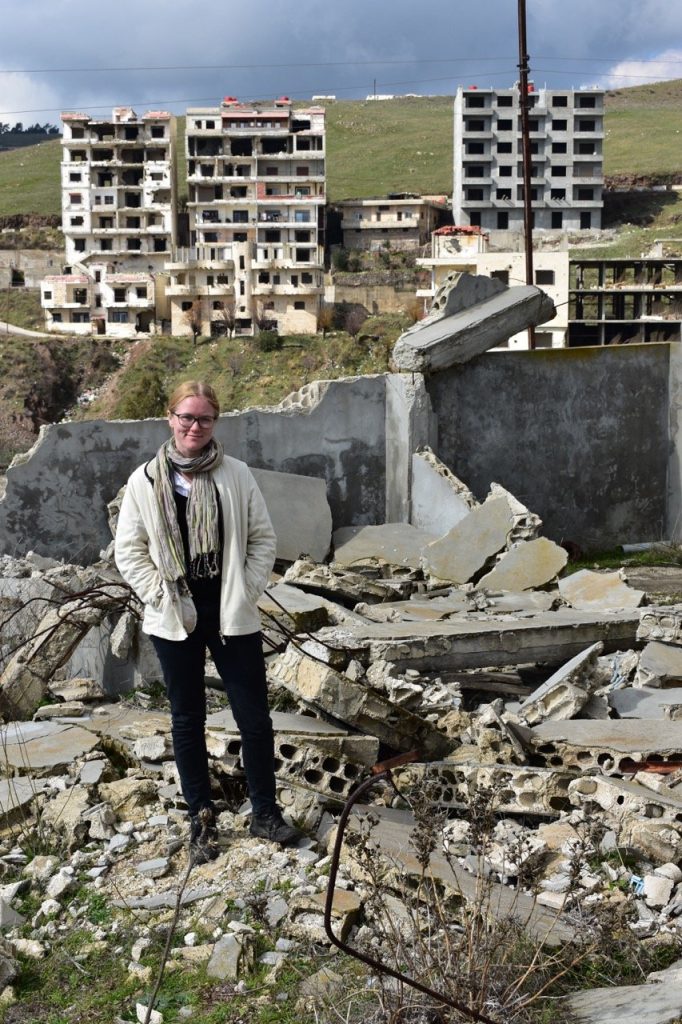
Which trip made the biggest impact on you so far? Are there some good travel stories that you can share with us to illustrate the importance of travel in your life?
Roadtrip in Syria in February 2022 with Mette made an impression as I had never visited a country that had so recently been at war, nor seen destruction at such a scale. People’s homes are being bombed. I had not imagined travelling to this country I had only seen in the news on reports of war and then being there with roadblocks and posters of Assad everywhere and our driver crying from sad memories at least twice.
In one place, his brother had been killed by a sniper. In Crac de Chevalier, we met the sweetest man who had lost his mind from being captured and tortured by ISIS
Saudi Arabia also made an impression as it had been closed and then we came and were even allowed to move around without a scarf. We were four women most of the trip with long hair in blond, red, black and purple (!). That made quite an impression in Saudi in contrast to the black Niqabs.
Parts of the trip felt like going in a time capsule – seeing the remnants of the Nabataean civilization in Hegra, Al `Ula was special.
The contrast to present-day reality became brutal at the Chop Chop Square in Riyadh. I must admit that I asked if the name referred to a fruit market. Turns out this was the public execution square, that was still in use every Friday. The authorities would literally chop criminals’ heads off, let them bleed out, and then sow the head on again for a proper burial.
I am naturally curious and love learning, so travelling has become the most immersive form of education in terms of language, culture, history and politics. In Saudi Arabia, I learned Chop Chop did not mean fruit.
On a side note, it was also special – in a different way, and exclusively for women – to be checked for breast cancer in a Riyadh shopping mall during international breast cancer month.
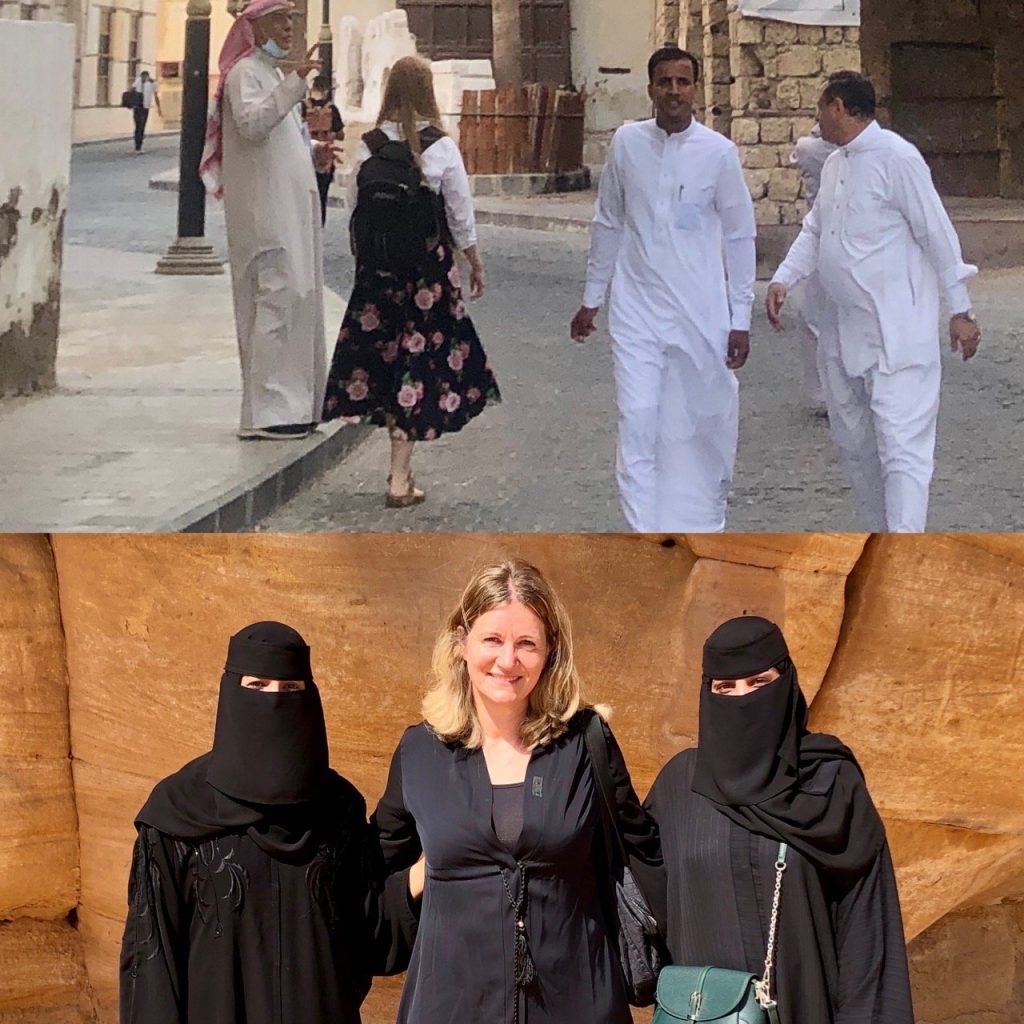
When you two travel together, what are your biggest travel interests? What do you like to explore the most?
We have really loved the years 2021-22, where Laerke prioritized traveling together with me quite intensely. Our trips these years have been to Mauritania, Burundi, Syria, Socotra, Bolivia, Uruguay, Paraguay and Equatorial Guinea just the two of us. Plus Chad, Iran, Saudi, São Tomé, Uganda, Rwanda, Maldives, Sri Lanka, Venezuela, Cuba, Jamaica and Azerbaijan with Ella, Jakob and Nomads / MTP as well. All this during covid, on top of us also working and studying.
When we travel together, our main interests are the socioeconomics and politics of the country. In this sense, the adventure is not in climbing the highest mountain to us.
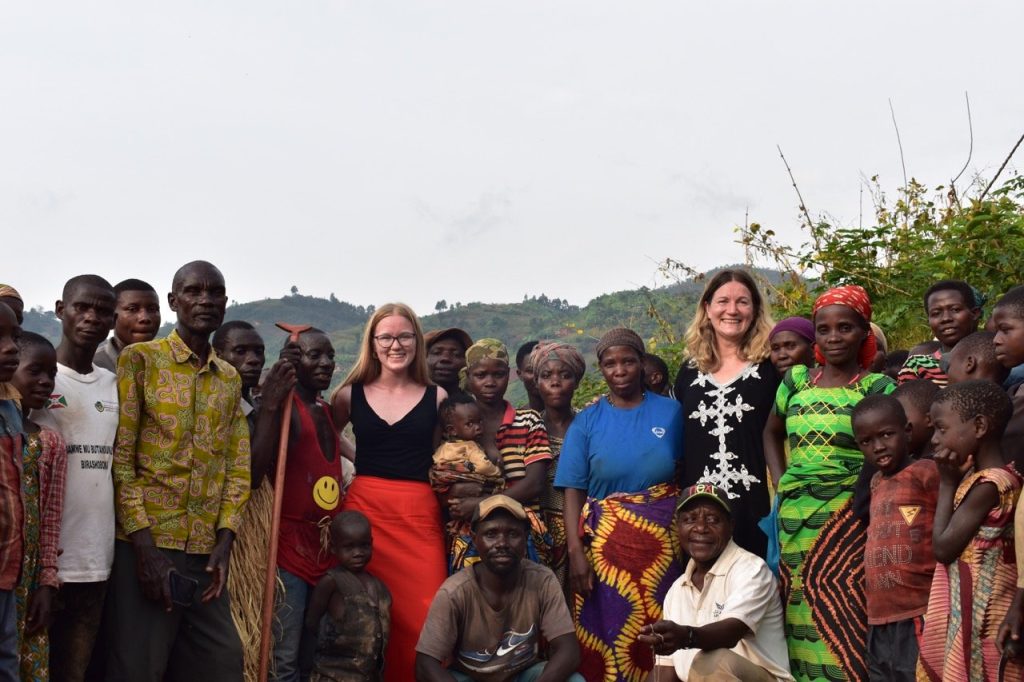
And how about when you travel solo or with the rest of your family? A question for both of you.
Laerke: I get hooked on ‘impression overload’. The vibrant colours, voices and variety of products draw me to the local shops, markets and bazaars, where I often drag both Mette and my other travel companions. When I travel solo or plan on my own, I put a much bigger emphasis on music. I enjoy finding musical performances and concerts in advance. I have also created a playlist where I collect local song recommendations from the different countries I visit.
Mette: When I travel solo, I change speed often, as I don’t have to lead and compromise to get the group working. I also visit my network abroad more. It’s rather large from 8 years studying and working abroad and 18 years as a diplomat besides the many travels.
I have many people in my life, I enjoy travelling with. Besides family, also globetrotters and ‘normal’ friends. With my partner Jakob, who has visited 153 countries and is also a member of NomadMania, I both have travelled around the world and also enjoy microbreweries and whisky distilleries.
My travel life has phases. When I changed from travelling as a nuclear family I needed less skiing, sailing and diving to get the father of my kids to join. Then also I increased my speed in visiting countries as I was free to prioritise my time and money.
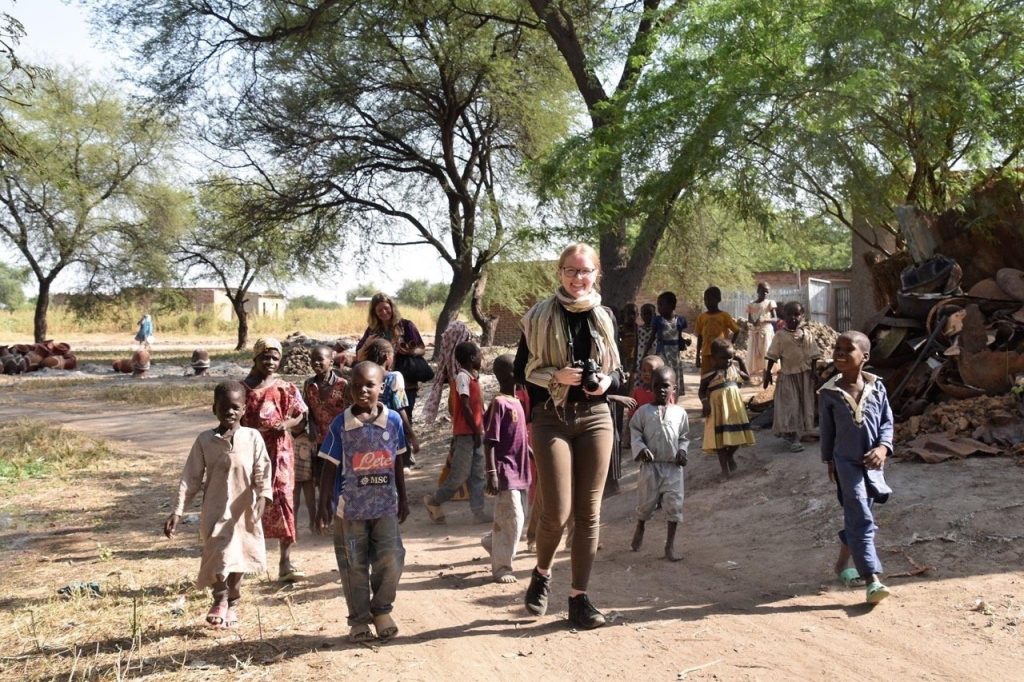
Laerke – do you have the same ambitious goal as your mother? Do you want to visit all countries of the world and why?
I love travelling, and am passionate about visiting new countries – I find joy in it and learn from it. But visiting every single country is not a concrete goal. Instead, combining travelling with starting my studies in International Business and specifically the Asian market will be my focus in the coming years. I expect I will also have different phases in my life dedicated to travelling at different speeds and with different focuses.
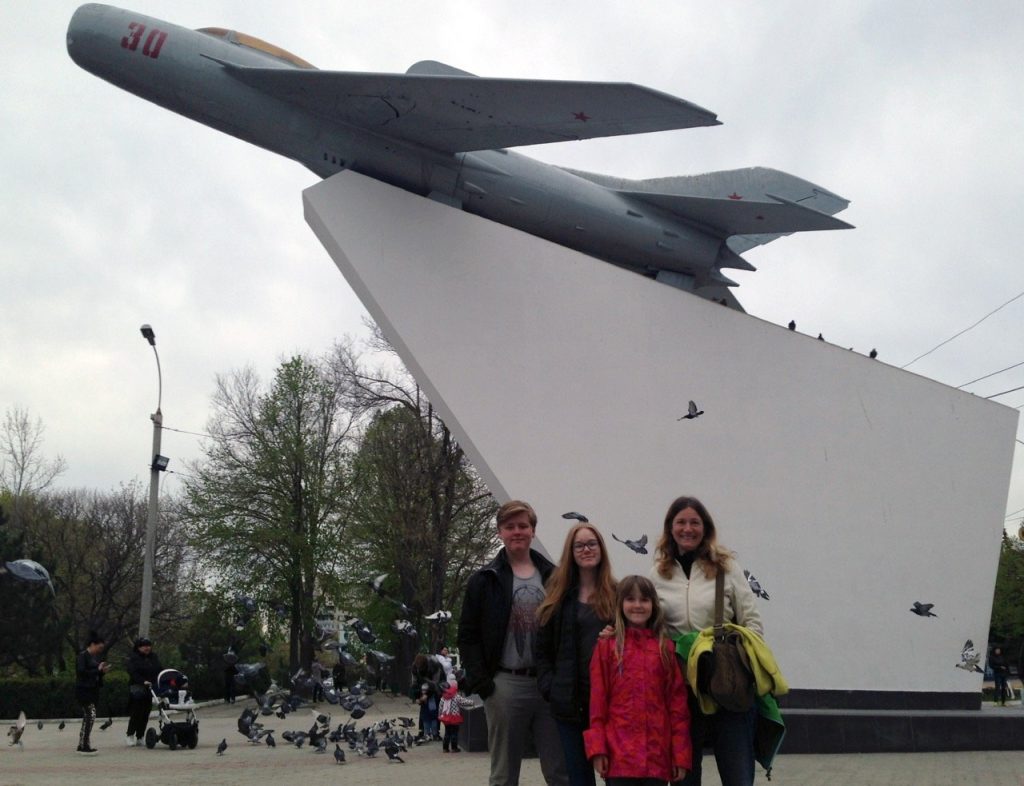
Do other members of your family share the same love for travel as you two, in your opinion?
Laerke’s siblings, Ella (14 years old) and Nicolai (21 years old) share our love for travel. They have both visited more than 80 countries, almost all with Mette.
We are really from a family of 4 generations of female travellers. Mette’s grandmother is on her mothers’ side especially, but also her other grandmother. Both Mette’s parents. The kids’ father followed Mette moving abroad 3 times and for 8 months around the world. Mette’s partner Jakob Linaa Jensen and Mette met at the Danish Travelers Club.
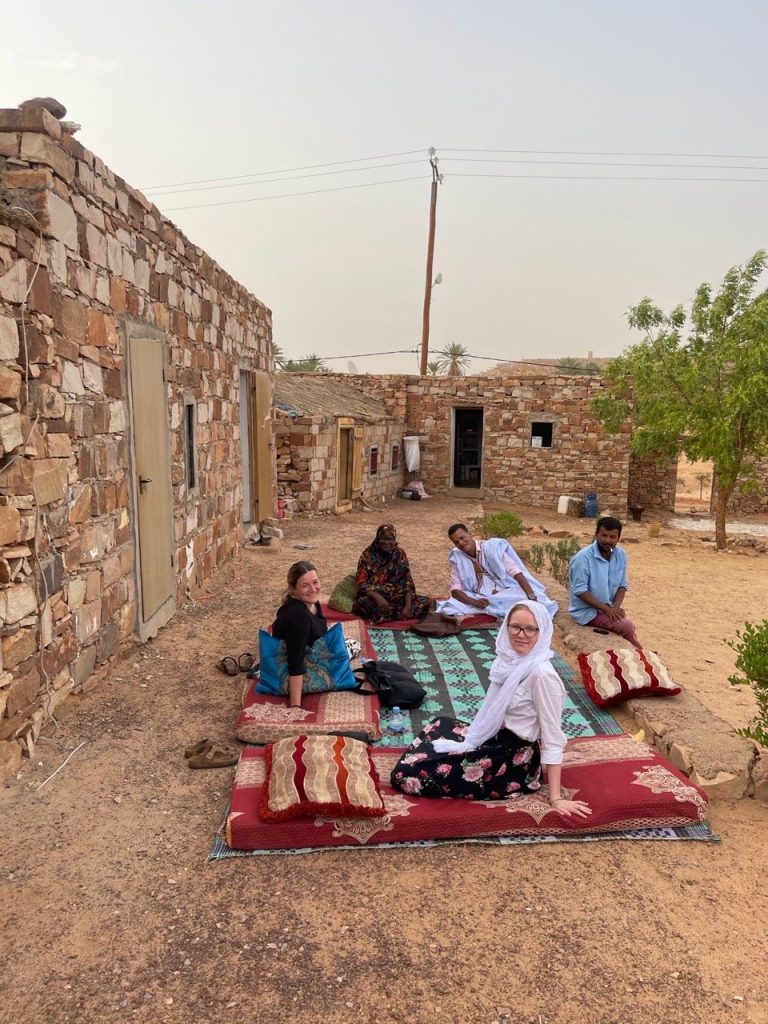
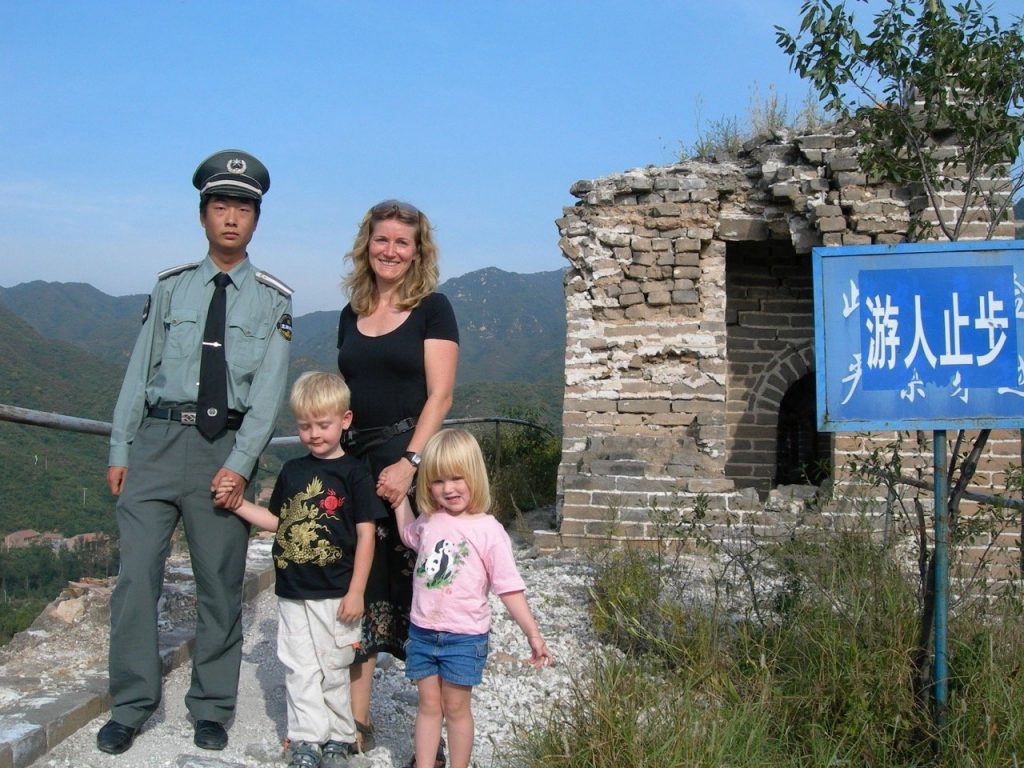
How did your general view of the world change with travelling?
Mette: Travels make me really understand at a deeper level than studies, books and TV.
For international trade – travels along the Silk Route. Eg. Iran traded with Western partners during the Shah and now it’s Russia and China. The bazaars are full of Chinese copies of Persian patterns. The Chinese influence increasing through trade everywhere and especially in the countries where the West have sanctions to free their populations and the world from dictators.
For history and alliances – following the 2nd World War through Europe, USA and Israel, or WWII through the Pacific Island States from Hawai to Japan.
For women, climate and UN world goals – women should decide how many kids they want and when. It is just a way to limit even more growth in overpopulation as women rarely choose many pregnancies. This is also necessary to ensure solutions for climate and biodiversity
At the Great Wall in China in 2006 a soldier insisted first we should turn around, but I resisted as it was 1/2 hour downhill and more up again at a part of the wall with no other visitors where parts of the wall were falling apart. Then the soldier instead insisted on following us. I thought he would arrest us until it turned out he wanted to make sure we paid 3 USD for the family entrance, as we had come in through the back door without paying.
Today I worry less.
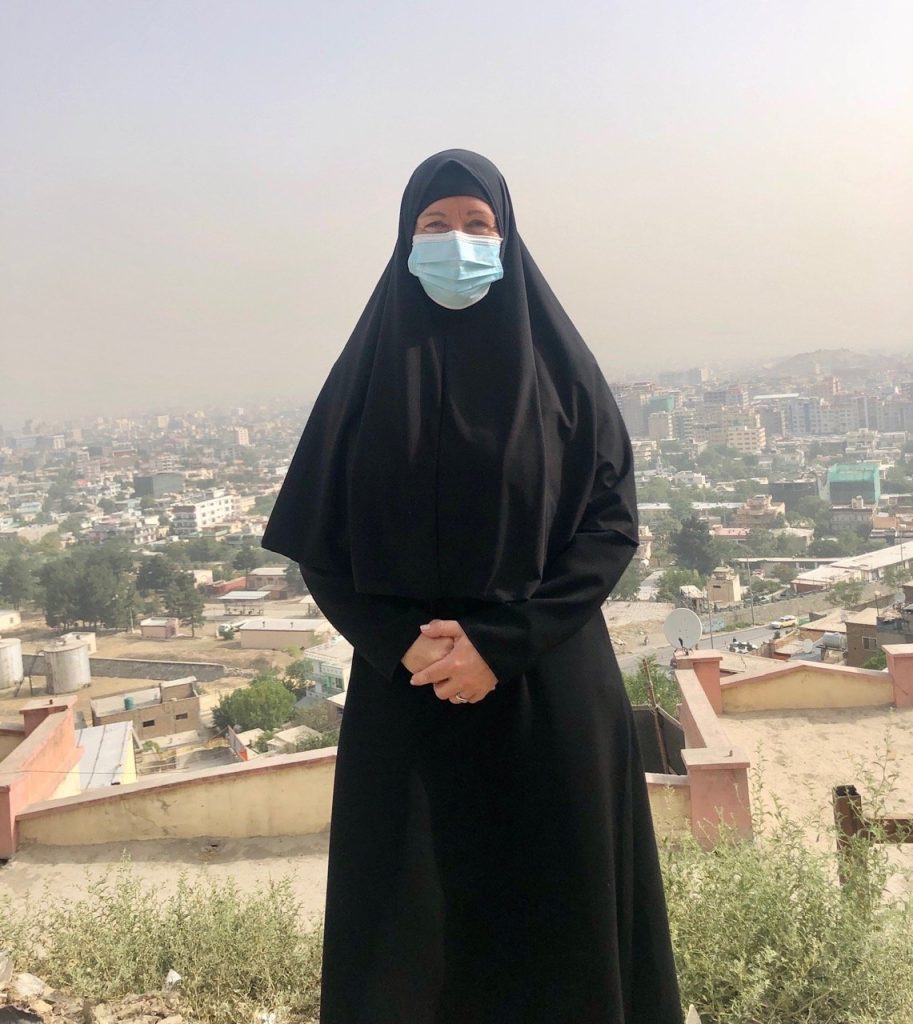
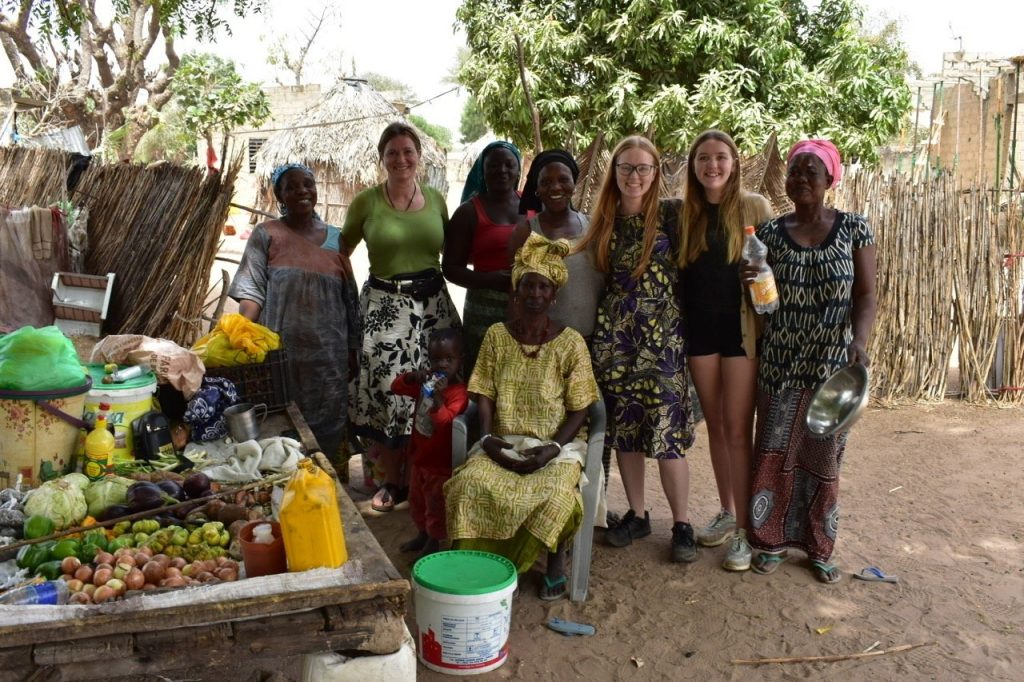
Since the both of you are representing female travellers which are de facto less to be seen out there than the male ones, is there some general advice you can share with other girls when it comes to travelling?
Be street smart / trust your instinct and ally yourself with locals who are street smart. Use local fixers for the riskiest countries.
Be aware that many local men are not used to women being free to travel. Then, assuming you are also wealthy and free to have sex with them. Have fun, but stay safe. And consider that sometimes a fake wedding ring works wonders.
Be realistic. Most proposals involve the hope of a green card/visa more than love. My driver drove 20 km/h to the airport in Malawi to have time to propose in the middle of the night.
More interesting, that trip also lead to a board job where we grew a business with microfinancing from 64 women to 6400 women farmers in just two years. So keep an open mind for business opportunities too.
Don’t look rich or try to impress. Play it down to avoid the risk of getting robbed, raped or kidnapped, and (more likely) of being presented with too high prices by salespeople and fixers. Many countries have no middle class and you do not wish to seem rich.
Use the phases in your life and travel in different constellations at different ages to different destinations. Inter-rail. Family travels. Travels with friends. Solo.
Have fun. Connect with the local women. Buy some rice, milk powder, etc. and go visit a village. Buy some tomatoes from them or whatever they sell. It’s more dignified than giving money.
Practice. Take the easier and safer adventures first. Equatorial Guinea and Papua New Guinea should not be the first.
Try to dress locally once in a while in the most remote places. It opens even more doors.
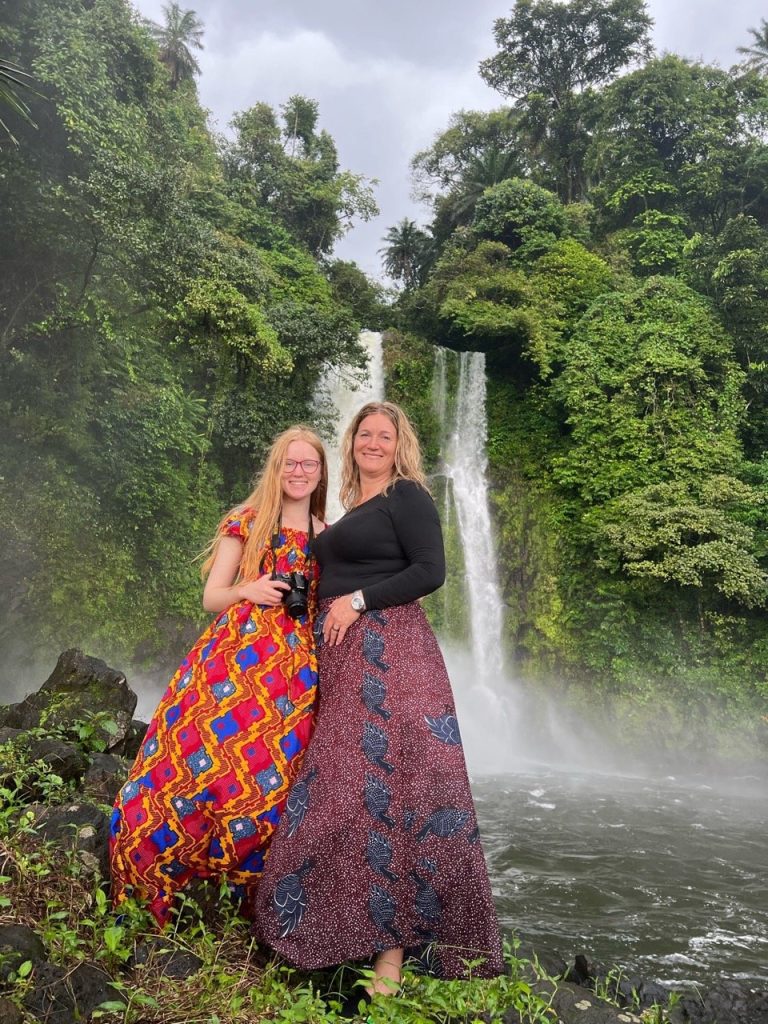
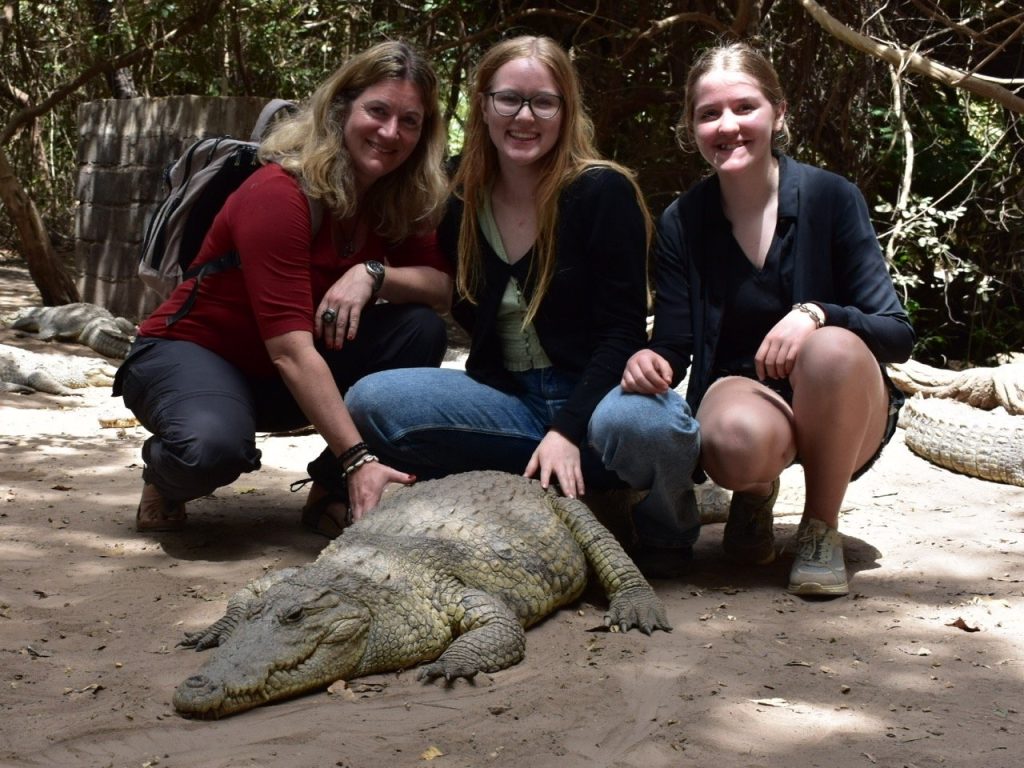
How about some advice for other mothers and daughters out there? How would you motivate them to have more courage to try new things and go out and explore?
Trust your judgement. Most people are so helpful and actually do protect mothers and daughters as almost sacred.
Dare a little. A small initiation ritual can look more dangerous than it is and still build confidence
Use your network and help each other. Get good (female) fixers recommended by other women for the most restrictive countries. We have enjoyed this in Syria, Iran and Brunei recently.
Engage in something important that locals also do with their children. It can be visiting a school and having brought school supplies. Or getting up early to give rice to the monks in Laos.
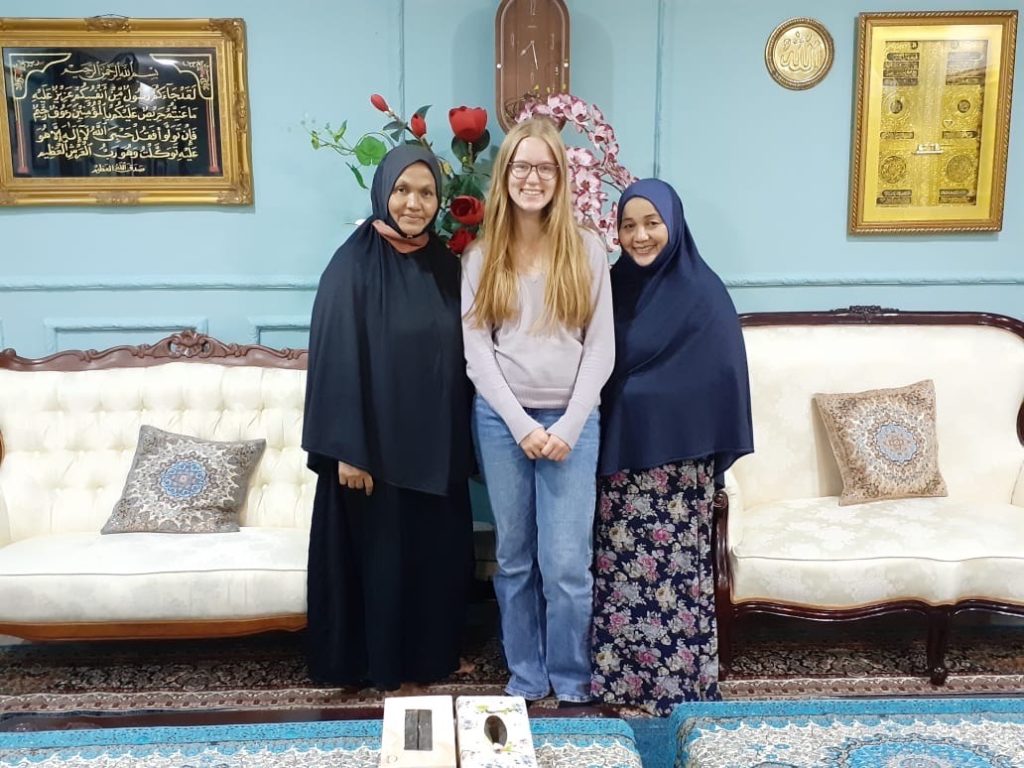
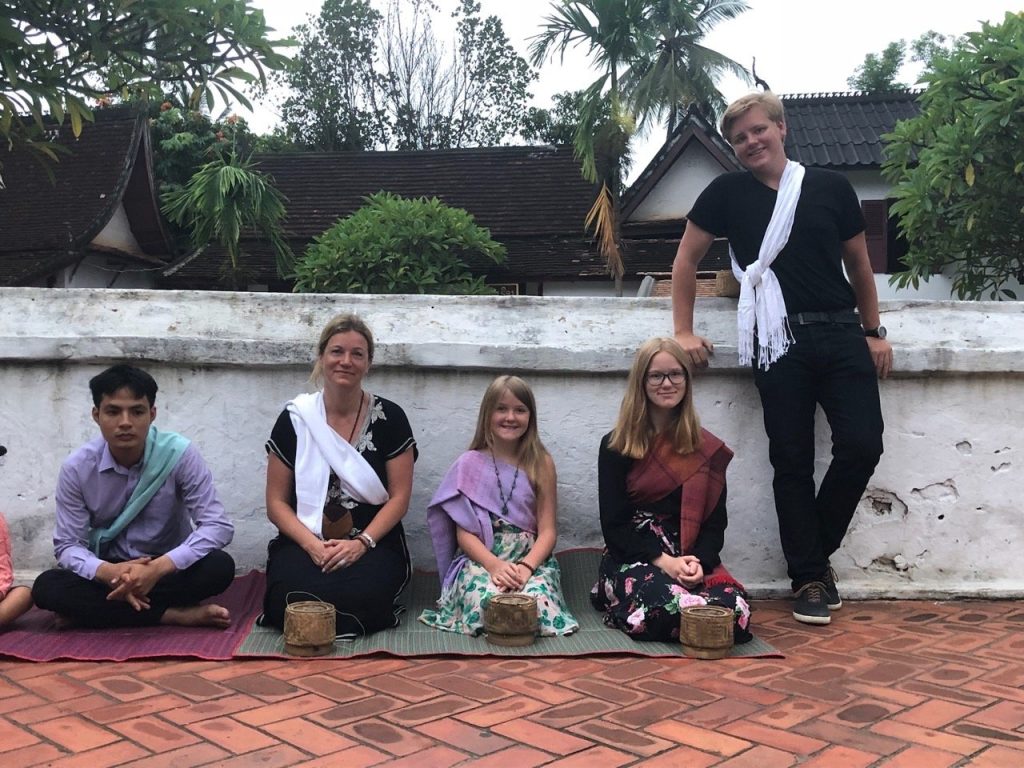
We have a signature question that we ask all of our guests: if you could invite 4 people from any era to dinner, who would your guests be and why? Let’s assume you’re hosting this party together and without other family members, just for fun.
The Danish Queen Margrethe II met numerous people during her 50 years as Queen and wisely concluded that everybody has something interesting to share. You just have to ask and listen.
The researcher of especially gorillas, Jane Goddal for her courage and research of biodiversity and environment.
The former Norwegian Prime Minister and later head of WHO, Gro Harlem Brundtland, for her fight for women’s right to their own bodies and education.
Madeleine Albright, Benazir Bhutto, Indira Gandhi or Katarina the Great for being leaders in very different countries and taking personal responsibility.
